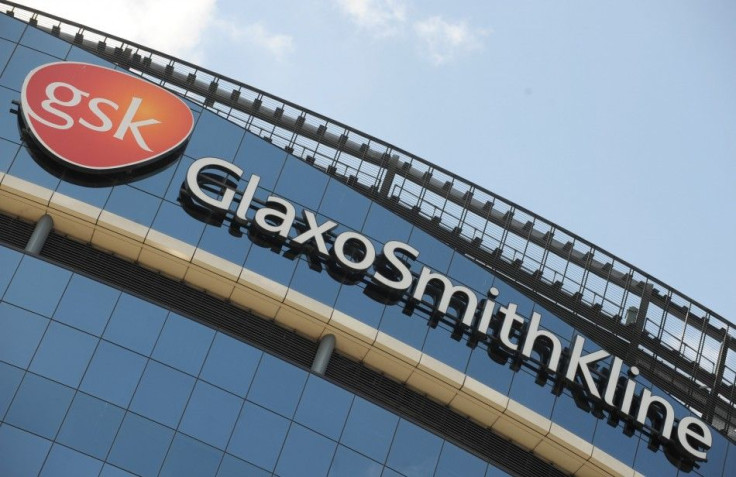Supreme Court Wrestles With Overtime Pay For Pharmaceutical Sales Reps

The U.S. Supreme Court wrestled Monday with how to classify about 90,000 pharmaceutical sales representatives under a labor law that exempts them from receiving overtime pay.
These employees have fallen under the Fair Labor Standards Act's overtime exemption for outside sales people. There have been efforts to get them qualified for overtime because they never actually sell drugs, just pitch them to doctors. The case before the Supreme Court, from two GlaxoSmithKline employees, is backed by the Obama administration.
The pharmaceutical industry fears drug makers will be on the hook for billions of dollars in back pay and retroactive liability if the Supreme Court sides with the company representatives, also known as detailers. Furthermore, such a ruling would give federal agencies' interpretations of statutes extra weight during litigation.
It certainly means compliance becomes quite unpredictable and it can change quite dramatically from administration to administration, said Lee Schreter, co-chair of Littler Mendelson's wage and hour practice. This is the case being watched very closely, not just in the pharmaceutical industry. It could have far-reaching impact for any employer that has a sales force.
Sales Pitch Or Just A Sale?
At Monday's oral arguments, the justices hashed out the responsibilities of the so-called sales representatives, who do not actually sell drugs to doctors. Their task, to get physicians to prescribe the medications they are peddling, requires them to visit doctors' offices during the day, in addition to any dinner functions, trade shows and golf outings they attend to build relationships with physicians.
GlaxoSmithKline counsel Paul Clement said the reps' contribution to the sales process is integral in the pharmaceutical industry because drugs are sold based on how much doctors prescribe.
They were hired for a sales job. They were given sales training. They attend sales conferences. They are assigned to sales territory, and they are evaluated and compensated as sales people, said Clement, who argued the case against the administration's health care reform before the court only a few weeks ago.
But they don't do sales, Chief Justice John Roberts said. Your long list sort of stopped one step short.
Justice Sonia Sotomayor suggested Clement's argument would make any pitchman a salesman who is exempted from overtime pay.
It seems like the sale here is not the primary duty, she said. The sale here is to schmooze the doctor and give him information.
Clement said the reps' objective is to get a commitment from doctors to consider a drug when appropriate for a patient, though it is illegal for physicians to make any promises. The commitment, he argued, puts the reps under the sales exemption for overtime pay.
His argument was picked up by Justice Elena Kagan, who seemed skeptical of the Obama administration's argument that the reps never participate in the actual sale of pharmaceuticals.
That seems a little bit blind to the way the industry actually works, she told Deputy Solicitor General Malcolm Stewart, who argued in support of the GlaxoSmithKline employees. The actual sales from the company to the pharmacy just follow from however successful the detailer is.
Deferring to Agencies
In addition to figuring out what constitutes a sale under the overtime pay exemption, the justices heard arguments about how much weight the Department of Labor's opinion should carry in a courtroom.
Some of the justices were hostile to the agency's 2009 decision to support overtime pay for sales reps in a friend-of-the-court, or amicus, brief. The Second Circuit in New York deferred to the agency's position, while the Ninth Circuit in California -- hearing a separate but similar suit -- did not.
Instead of doing rulemaking, instead of doing adjudication, we're going to file amicus briefs, and the court will accept our view in that amicus brief and, hey, presto, we have made law, Justice Antonin Scalia said.
To rebut claims the administration was making new rules through legal briefs, Stewart said the department's 2009 opinion siding with the sales reps was a simple matter of applying the facts of the GlaxoSmithKline case to the statute.
Stewart said he was aware of one instance in 2007 when the pharmaceutical industry asked the Department of Labor for an advisory opinion on detailers being covered by the outsides sales exemption, even though they had been part of the industry for 75 years. The only opinion the industry relied on was one from 1945, Stewart said.
These 90,000 people out there who have been in violation of the law and the agency has done not a blessed thing? Scalia said.
Rather than seeing the opinion as a policy-making maneuver, Kagan said the industry has been given a gift for all the years the sales reps were exempt from overtime pay.
They didn't enforce their own regulations against you, she said.
© Copyright IBTimes 2024. All rights reserved.











